Coalition clawback: Opposition Leader’s a tough man for tough times
As he puts Labor under increasing pressure for its failings on several fronts, Peter Dutton says he believes voters are reconsidering him as a leader.
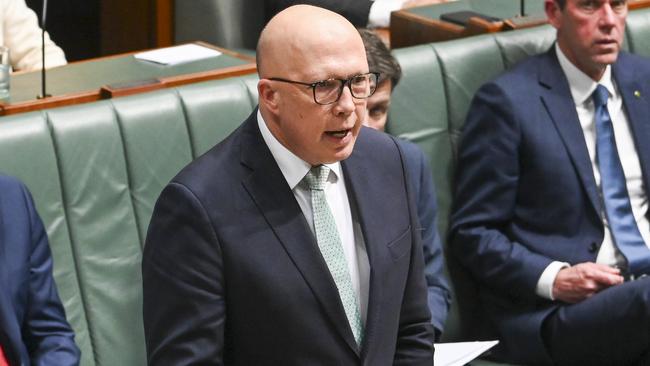
As a first-term Opposition Leader he’s high on collegiate unity and shy on detailed alternatives he will offer to the Albanese Labor government.
Anthony Albanese, likewise, is two years into his first term as Prime Minister, 10 months away from having to call an election.
As a first-term Prime Minister he’s high on ministerial stability, if not capability, and shy on an agenda to take to that election – apart from an economic plan that is under duress.
Dutton declared this week in an interview with Inquirer to mark his second anniversary as leader: “I’m optimistic and I’m heartened by where we are after only two years. I’m incredibly proud of the unity and the sense of purpose and the collegiality within the team. It’s made us look like a credible alternative government.
“It’s allowed us to highlight the failings of the government and hold them to account instead of creating the normal distraction that goes with being an opposition, of disunity and lack of direction.
“It’s certainly a contrast to the last time the Coalition went out after 10 years in government, and there wouldn’t be too many first-term oppositions where there has been this strength of purpose and unity.”
But Dutton has to do much more. He must produce an agenda and a pathway to victory because he is not only in opposition but also facing a challenge in clawing back a big deficit of seats that must come from Labor and the affiliation of affluent teal independents who have grabbed some of the Liberals’ crown jewels in Sydney, Melbourne and Perth.
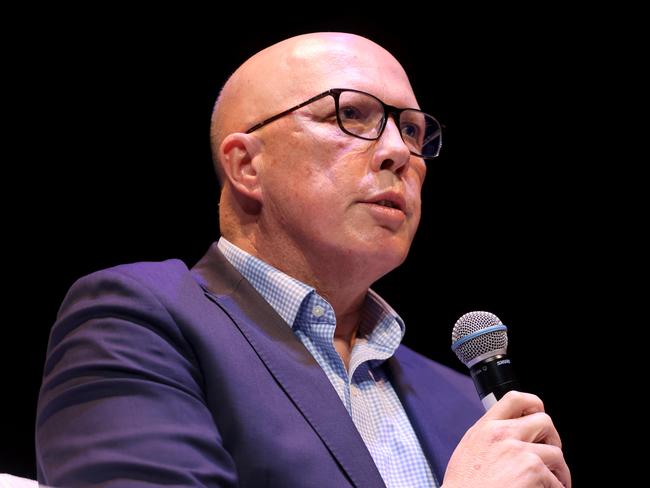
In the interview Dutton sets out a broad alternative agenda to Labor on personal leadership, energy, immigration, border protection, social cohesion, attitudes towards the Greens and taxation.
With each passing day he comes under more pressure from Labor to produce detailed policies, particularly on energy and tax, to keep a largely uninspiring team together and working, as well as promoting his own leadership and undermining Albanese’s.
The last point has been Dutton’s strength, largely because of his successful decision to oppose Albanese’s Indigenous voice to parliament referendum last October, his strong position on anti-Semitism, law and order and social cohesion, as well as his prosecution of the failure of Immigration Minister Andrew Giles to handle the issues of border protection and immigration detainees.
On the policy front Dutton has gone nuclear on energy; pledged to rein in record-high immigration, address the housing crisis and deport non-citizen criminals; and accepted that Albanese’s recast tax cuts have to remain while producing a no-frills taxation policy dependent on what can be afforded. There is no doubt Dutton has performed creditably in his first two years and well above the standard of most first-term oppositions, but there also is no doubt there is a long way to go.
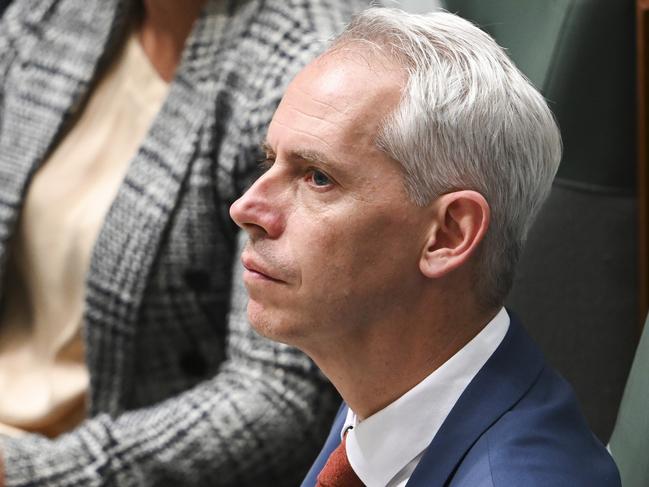
While not making overconfident or fanciful claims, Dutton maintains he can win in one term and turn the Albanese government into the first one-term federal government since 1931.
He bases this principally on the general unity of the Coalition and his success in keeping the accountability focus on the government.
During the week, expectations soared that Giles would be shifted in a cabinet reshuffle after the Prime Minister said it was possible he could have a shuffle before the election, but Albanese then sought to kill the speculation by saying “clearly” he wasn’t planning a ministerial change.
At the beginning of the 47th parliament Labor believed Dutton was unelectable, would flounder in the voice referendum and looked too much like a former copper – which he is – as the government painted him as angry and negative.
Dutton says he believes voters are reconsidering him as a leader and don’t see him just as Labor paints him, because of his “common sense” and sensitive approach to the voice referendum, which turned out to be in line with most Australians.
Ironically, the ALP’s depiction of Dutton as a tough person is now working in his favour at a time of significant concerns about law and order, the threat of released illegal detainees committing crimes, social division and border incursions for the first time in a decade.
On policy development, Dutton’s headline offering is for Australia to commit to nuclear energy by the 2040s with a nuclear-renewables package to achieve net-zero carbon emissions by 2050. On Thursday Albanese demanded that Dutton say where the nuclear power stations would be, when they would operate and how much they would cost.
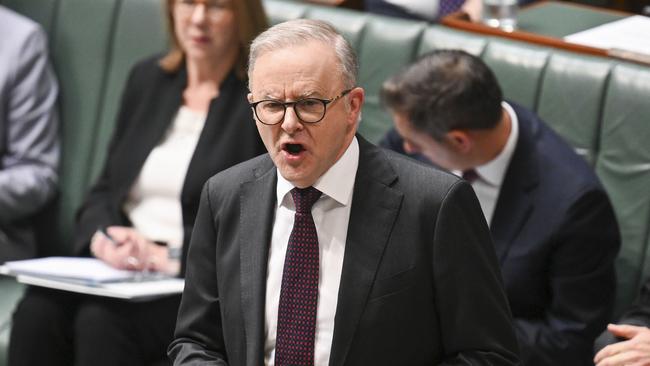
Just as Dutton has sought to depict Labor’s aims for carbon emissions reduction as being “renewables only”, Albanese and Climate Change and Energy Minister Chris Bowen term the Coalition’s policy as “nuclear only”. Both are effective arguments that concentrate on cost to taxpayers and energy consumers.
Dutton is seeking to change the foundation of his energy policy to include gas as part of the crucial transition from coal-fired power to renewables (and nuclear) in the 2040s. This is in the face of a clearly failing transition process and an inability to meet shorter carbon emission targets.
“I’ve been absolutely clear, and was in my budget reply speech, that gas is essential. We need to get as much gas into the marketplace as possible because we will lose 90 per cent of baseload power by 2034,” Dutton says as he accuses Labor of only recently waking up to the reality of the need for more gas.
Labor, according to Dutton, has up to now twinned gas “with coal as an evil fossil fuel”, yet it is crucial. Apart from changing laws to get more gas produced and into the market as well as developing the Beetaloo Basin, Dutton leaves the way open for not signing up to Labor’s 2030 carbon reduction target of 43 per cent.
He is committed to zero emissions by 2050 but clearly 2030 and 2035 targets are not going to bind a Coalition energy future.
“Well, they (Labor) just have no hope of achieving the targets and there’s no sense signing up to targets … you don’t have any prospect of achieving,” Dutton says. “We’re not going to destroy agriculture. We’re not going to stifle investment. We’re already seeing investment being withdrawn. We’re not going to create sovereign risk with our export partners, as Labor is doing with Japan and Korea.”
Dutton can see the weakness in offering an energy plan that does not come into effect until the mid-2040s without a viable alternative to coal and to assist renewable energy projects.
“So, gas is absolutely paramount to keep the lights on. And as we’ve seen in the United States, that’s done in the right way. You can lower prices for manufacturers and for small businesses and consumers,” he says.
“There’s never been any doubt in my mind that gas is absolutely essential. And without it, there’ll be catastrophic failure in the energy market over the next decade.”
Dutton also sees the weakening economy, with growth falling this week, inflation rising last week and unemployment going up, with Jim Chalmers warning of harder times ahead, as a crucial consideration when working out how to fulfil his pledge to cut record high immigration and select the migrants Australia needs.
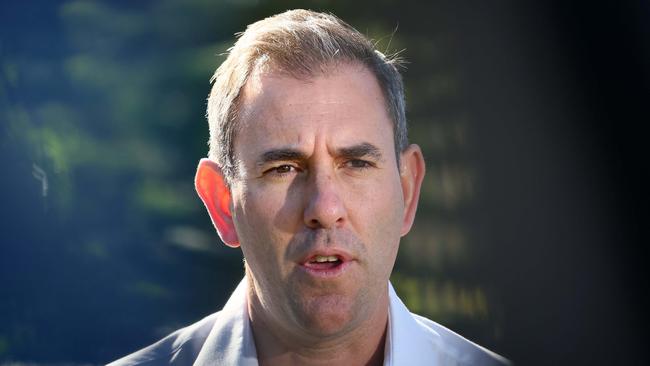
“I would, as prime minister, make sure the people that we’re bringing in contribute to our social fabric. People who are passionate about the advancement of our country and adding to the Australian story are not detracting from it,” he says.
“People who aren’t coming here for welfare but coming here for an opportunity and an excellent education system for their children and health system for their parents. So it’s absolutely essential to make sure that we get the right people as much as it is the people with the skills.”
Dutton, a former immigration minister, argues that a robust migration scheme can be achieved only when “there’s the support in the public” for immigration and that Labor has lost that support by bringing in 920,000 people across two years, its failure to deport “dangerous non-citizens”, illegal boat arrivals on the northwest coast and not building enough housing.
“There are millions of people who want to come to our country and we should not be ashamed of saying that,” Dutton says. “We want the best of the million people who want to come.”
Dutton agrees with Albanese’s comments in parliament that there is no place for importing hatred into Australia but says a “sliding doors moment for the Prime Minister and for the Jewish community” was missed after “the melee on the steps of the Sydney Opera House” on October 9 last year.
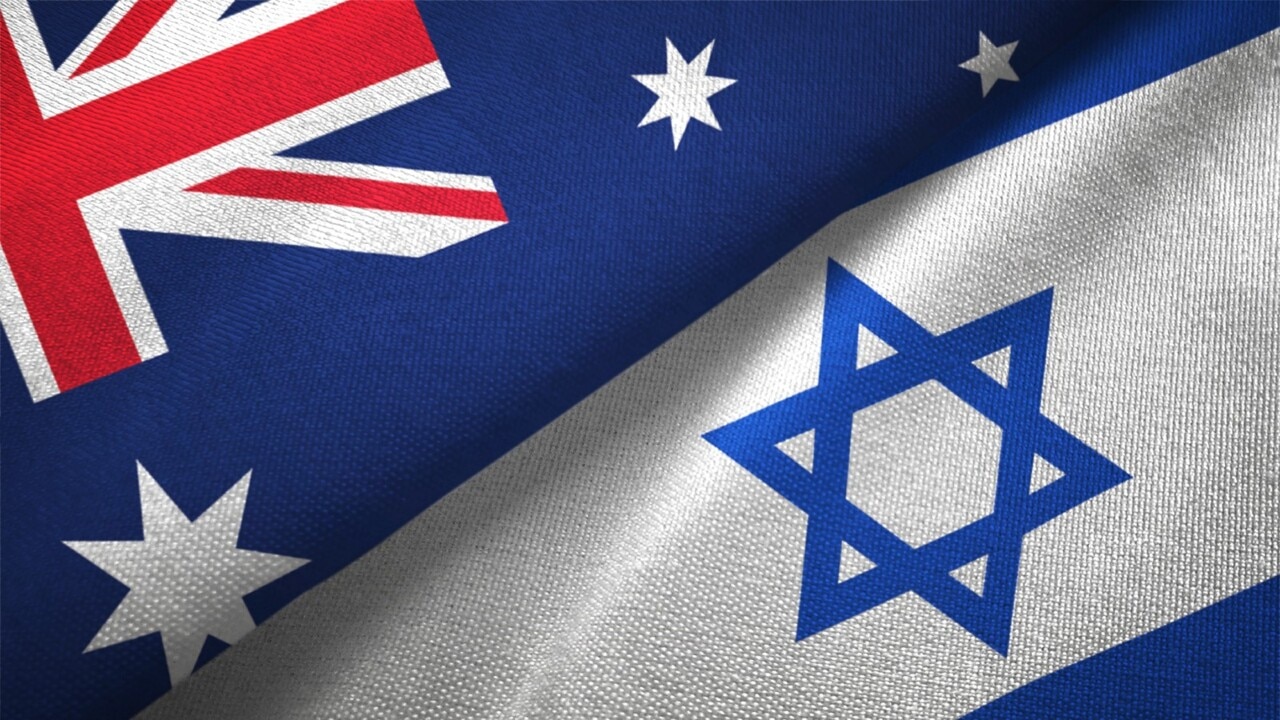
“The Prime Minister had the opportunity to provide very strong words of condemnation and not to wait for too long to make a statement,” Dutton says. “He had the ability to send a clear message to the premiers and to law enforcement agencies and to the ringleaders of these laws that we will not tolerate any level of anti-Semitism in our country.
“In the end, we’ve ended up with an appalling situation where Holocaust survivors, for the first time since the end of the Second World War, feel unsafe in our country. And we’ve got armed guards outside Jewish schools and places of gathering.
The incitement and the rage that we’ve seen in the university campuses, the demonstrations that we’ve seen, should not have been tolerated.
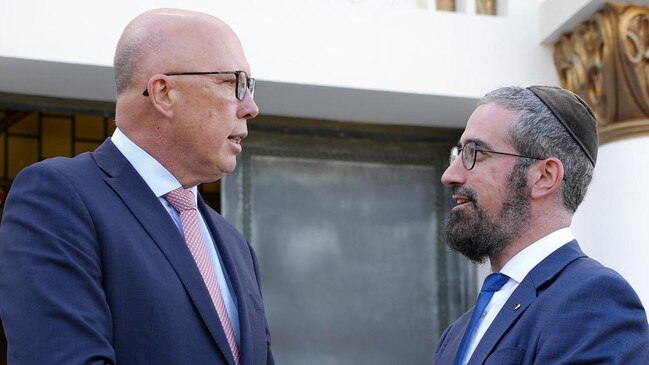
“Nobody’s been arrested for hundreds of thousands of dollars’ worth of damage to the offices of members of parliament. I think all of that sends a terribly weak and divided message.
“This was the opportunity for the Prime Minister to be strong, to stand up for the Jewish community, to stand up for the rule of law and for social cohesion in our country,” he says, after joining Albanese in parliament this week in condemning the Greens over anti-Semitic pro-Palestinian protests.
Looking towards the election, which can be held between mid-August this year and mid-May next year, Dutton calls on Albanese to not only adopt the Liberal commitment of putting the Greens last on Labor how-to-vote tickets but also rule out forming a minority government with them.
As Greens leader Adam Bandt threatens legal action against claims his party is “encouraging” violence in pro-Palestinian protests outside MPs offices, Dutton is calling for more action from Albanese.
“I understand the Prime Minister’s passion and desire in wanting to protect MPs and their staff but the tolerance that has been shown to these same people with their hate-filled chants of ‘river to the sea’ and ‘intifada’ have been tolerated for weeks now,” Dutton says.
“All of these radicals have been allowed to coexist on the Prime Minister’s watch and so, should the Greens be condemned for encouraging these extremists? Yes.
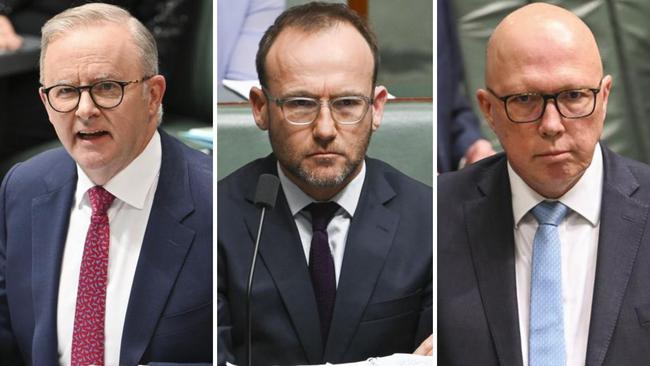
“I think the Prime Minister should join our commitment to put the Greens last at this election. The Greens are now an anti-Semitic party led by a radical Adam Bandt who is unworthy of public office.
“The Prime Minister tells us that he could be in coalition with the Greens after the next election and could form government with them as it has been in the past.
“If the Prime Minister has any strength of leadership the call that he must make is that the Labor Party will preference the Greens last at the next election,” Dutton tells Inquirer.
“That anti-Semitism, for which we should have zero tolerance, is flourishing within the Greens political party and that the Prime Minister could go into minority government with them would make a complete mockery of every statement he has made.
“In all my quarter of a century in politics I have never seen such fear in the Jewish community and I don’t think in our lifetime have we seen the fear within a particular segment of our community that we are seeing now.”
In parliament Albanese ducked Dutton’s direct challenge to “put the Greens last” under the cover of saying the decision on the order of preferences on voting tickets was a decision for the organisational wing of the party.
He also said Labor would not be “taking lectures from the mob who want to preference One Nation”.
But, of course, Dutton’s call was based on the actions of then Liberal prime minister John Howard, who in 2000 decided, as leader, to put One Nation last on the how-to-vote card.
Howard has told The Weekend Australian he believes both the Liberals and Labor should join common cause against the Greens and put them last on all the tickets. Dutton’s approach in opposition is not greatly different to that of Howard, who lost one election and won another as opposition leader.


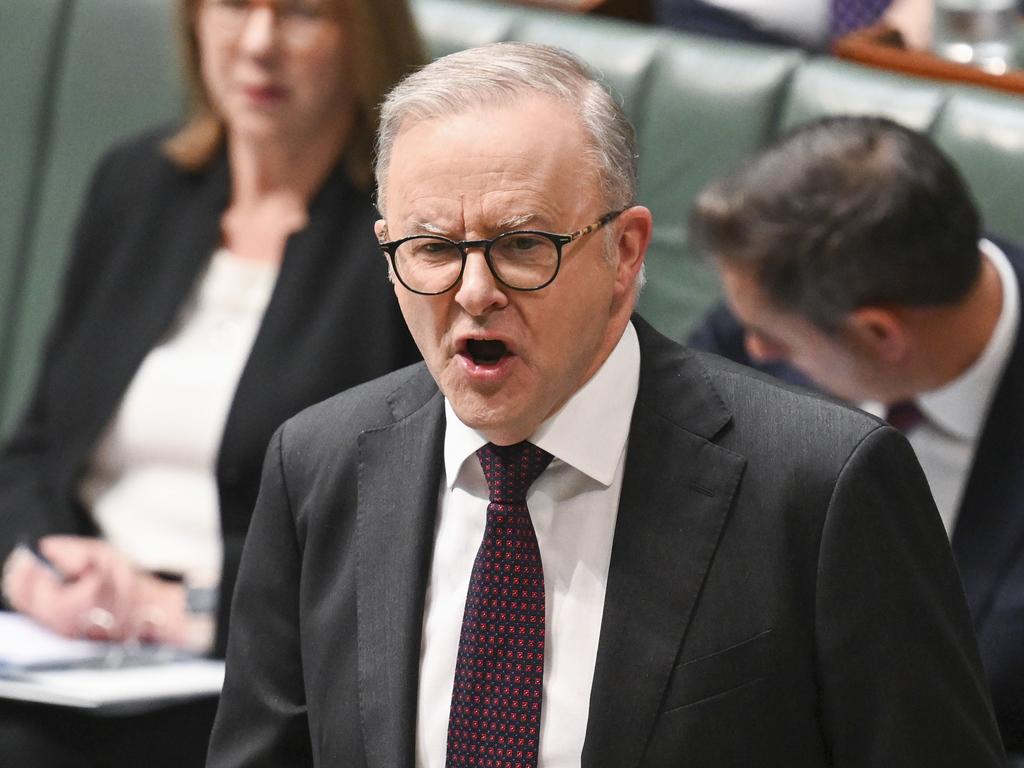
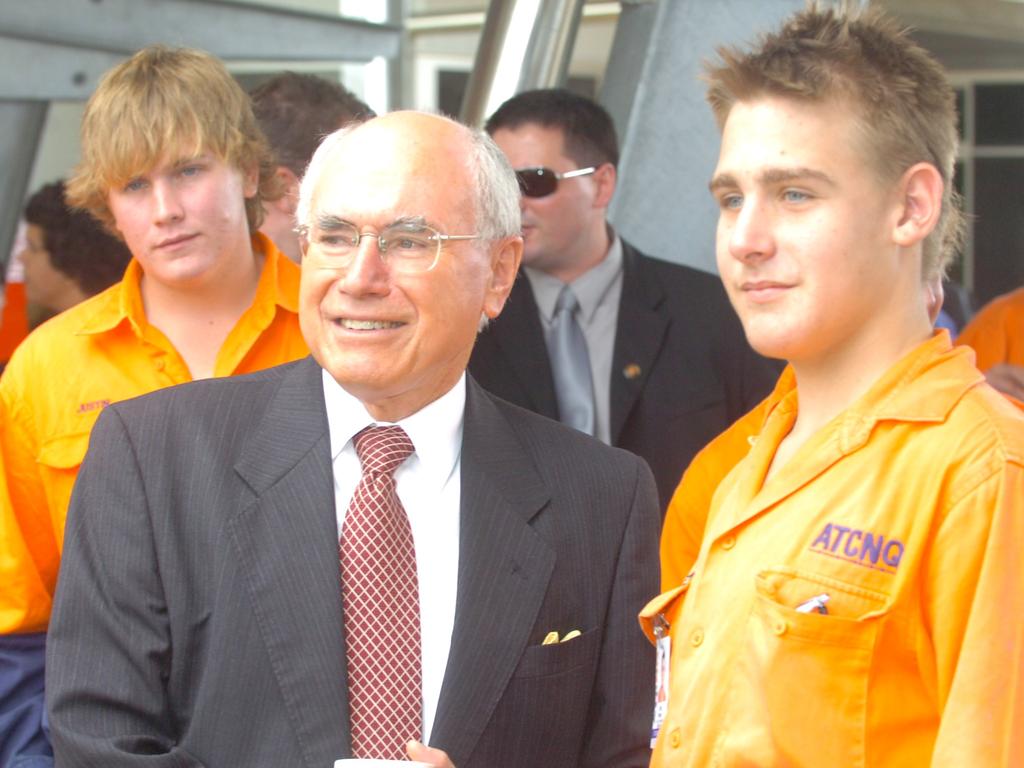

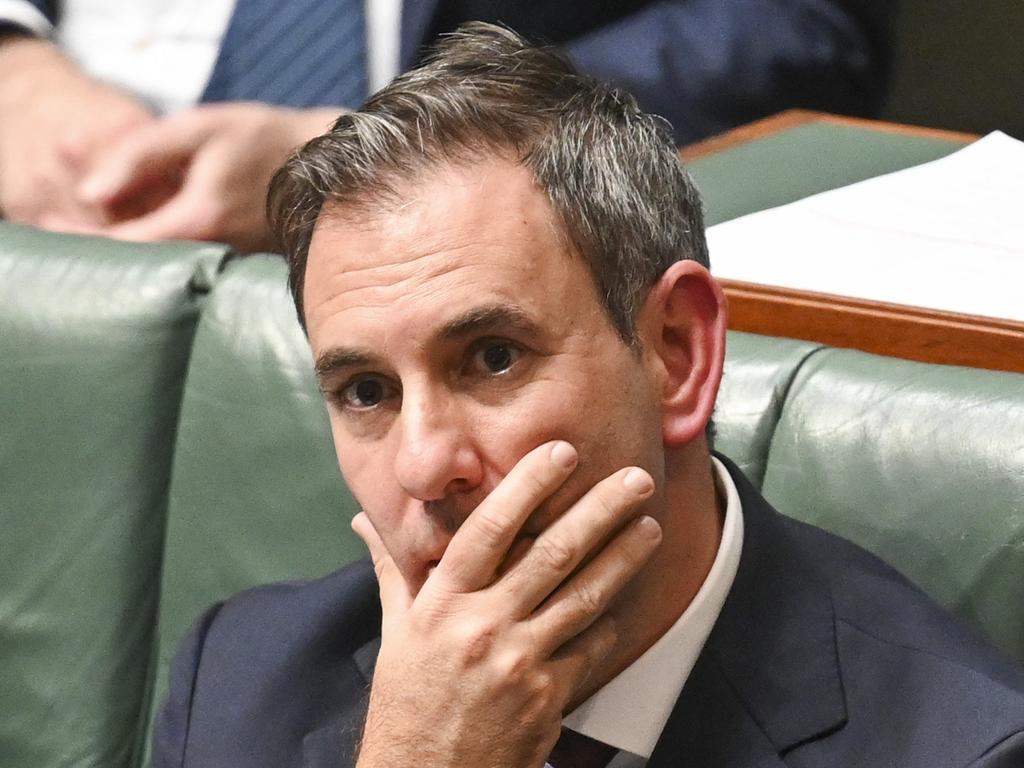
Peter Dutton has been Opposition Leader for two years and is now only 10 months from when an election must be called for mid-May next year.